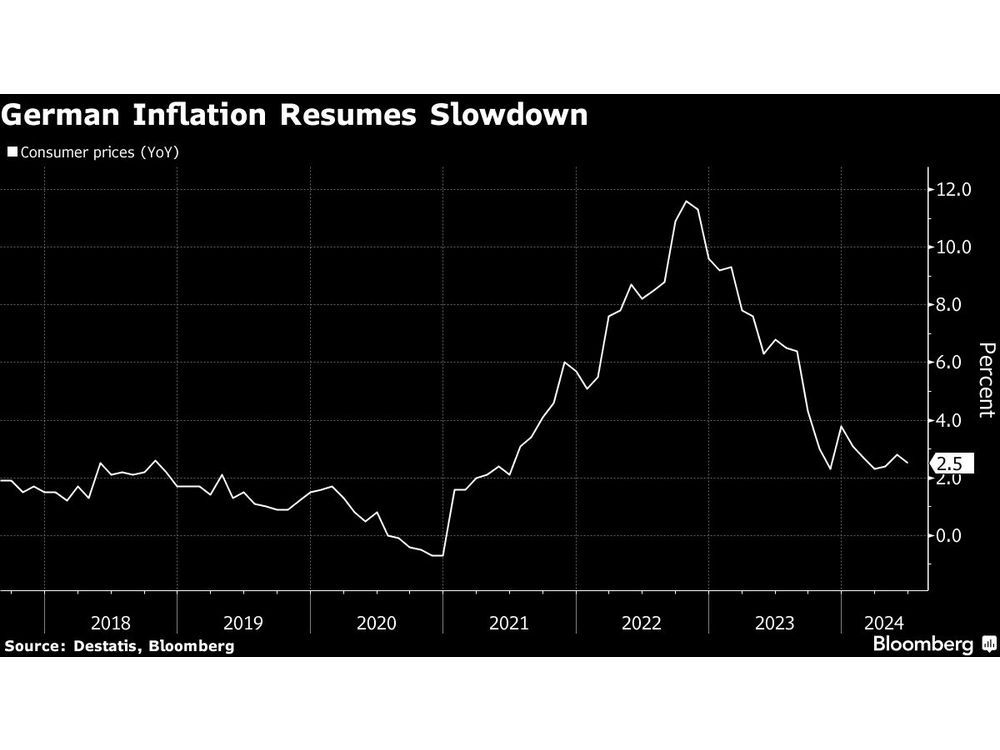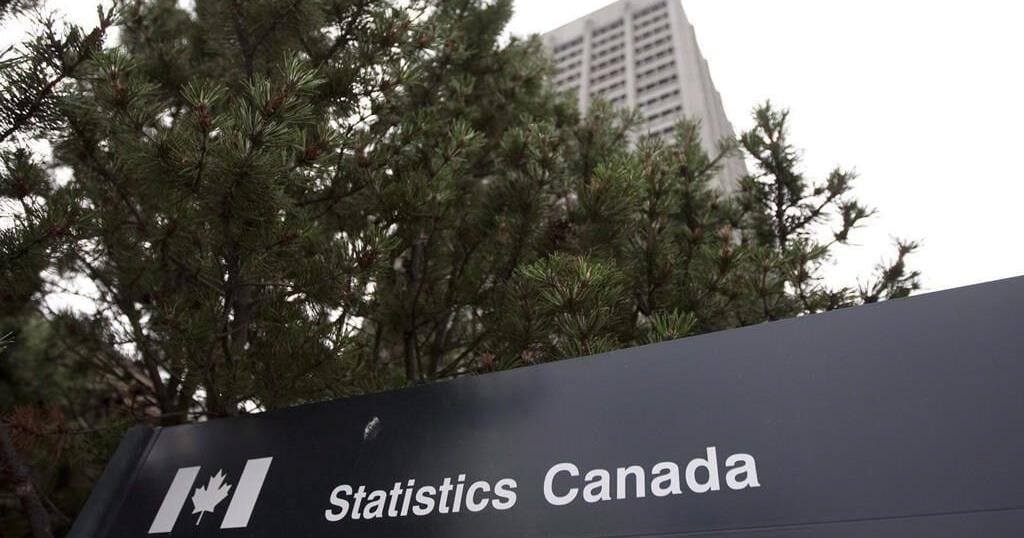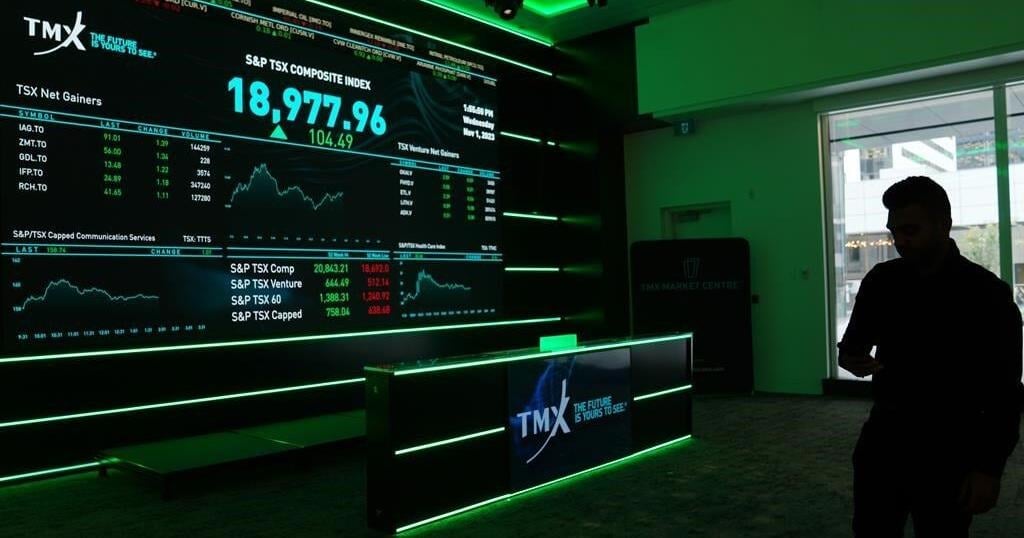TORONTO – Canada’s main stock index closed above 24,000 for the first time Thursday as strength in base metals and other sectors outweighed losses in energy, while U.S. markets also rose and the S&P 500 notched another record as well.
“Another day, another record,” said Angelo Kourkafas, senior investment strategist at Edward Jones.
“The path of least resistance continues to be higher.”
The S&P/TSX composite index closed up 127.95 points at 24,033.83.
In New York, the Dow Jones industrial average was up 260.36 points at 42,175.11. The S&P 500 index was up 23.11 points at 5,745.37, while the Nasdaq composite was up 108.09 points at 18,190.29.
Markets continue to be optimistic about an economic soft landing, said Kourkafas, after the U.S. Federal Reserve last week announced an outsized cut to its key interest rate following months of speculation about when it would start easing policy.
Economic data Thursday added to the story that the U.S. economy remains resilient despite higher rates, said Kourkafas.
The U.S. economy grew at a three-per-cent annual rate in the second quarter, one report said, picking up from the first quarter of the year. Another report showed fewer U.S. workers applied for unemployment benefits last week.
The data shows “the economy remains on strong footing while the Fed is pivoting now in a decisive way towards an easier policy,” said Kourkafas.
The Fed’s decisive move gave investors more reason to believe that a soft landing is still the “base case scenario,” he said, “and likely reduces the downside risks for a recession by having the Fed moving too late or falling behind the curve.”
North of the border, the TSX usually gets a boost from Wall St. strength, said Kourkafas, but on Thursday the index also reflected some optimism of its own as the Bank of Canada has already cut rates three times to address weakening in the economy.
“The Bank of Canada likely now will be emboldened by the Fed,” he said.
“They didn’t want to move too far ahead of the Fed, and now that the Fed moved in a bigger-than-expected way, that provides more room for the Bank of Canada to cut as aggressively as needed to support the economy, given that inflation is within the target range.”
The TSX has also been benefiting from strength in materials after China’s central bank announced several measures meant to support the company’s economy, said Kourkafas.
However, energy stocks dragged on the Canadian index as oil prices fell Thursday following a report that Saudi Arabia was preparing to abandon its unofficial US$100-per-barrel price target for crude as it prepares to increase its output.
The Canadian dollar traded for 74.22 cents US compared with 74.28 cents US on Wednesday.
The November crude oil contract was down US$2.02 at US$67.67 per barrel and the November natural gas contract was down seven cents at US$2.75 per mmBTU.
The December gold contract was up US$10.20 at US$2,694.90 an ounce and the December copper contract was up 15 cents at US$4.64 a pound.
— With files from The Associated Press
This report by The Canadian Press was first published Sept. 26, 2024.
Companies in this story: (TSX:GSPTSE, TSX:CADUSD)


























